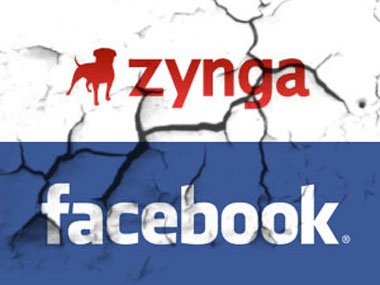The Belmont Bruins score a perfect 1,000 in the Academic Progress Rate, a metric the NCAA has used to improve the academic standards for March Madness teams.?
By Stacy Teicher Khadaroo,?Staff writer / March 21, 2013
Belmont players celebrate winning the Ohio Valley Conference men's tournament championship earlier this month in Nashville, Tenn., which qualified them for March Madness.
Wade Payne/AP
Enlarge
The Belmont Bruins have virtually no chance of winning the NCAA men?s basketball tournament. Ranked No. 11 in the Midwest bracket, they?ll be thrilled just to survive their second round game against the Arizona Wildcats Thursday night.
Skip to next paragraph
' +
google_ads[0].line2 + '
' +
google_ads[0].line3 + '
'; } else if (google_ads.length > 1) { ad_unit += ''; } } document.getElementById("ad_unit").innerHTML += ad_unit; google_adnum += google_ads.length; return; } var google_adnum = 0; google_ad_client = "pub-6743622525202572"; google_ad_output = 'js'; google_max_num_ads = '1'; google_feedback = "on"; google_ad_type = "text"; google_adtest = "on"; google_image_size = '230x105'; google_skip = '0'; // -->
Subscribe Today to the Monitor
Click Here for your FREE 30 DAYS of
The Christian Science Monitor
Weekly Digital Edition
But by one measure, at least, the Nashville, Tenn., university is the prohibitive tournament favorite.
Belmont?s men?s basketball team boasts a 100 percent Graduation Success Rate (GSR), a graduation formula that accounts for student transfers. It also scores a perfect 1,000 in the NCAA?s Academic Progress Rate (APR), a formula set up in 2004 to reward teams whose students stay academically eligible and stay in school.
In fact, if teams advanced in March Madness based on academic achievement, Belmont would be national champion, according to a simulation by the website Inside Higher Ed.
Recent years have shown progress in bringing up the academic standards of teams in the NCAA tournament. The average GSR for this year?s men?s teams is 70 percent, up from 67 percent last year, according to an analysis by Richard Lapchick, director of The Institute for Diversity and Ethics in Sport at the University of Central Florida in Orlando.
New restrictions on postseason play for teams that don?t make benchmark academic scores are having an effect. The University of Connecticut men?s team, for one, has to sit out March Madness this year because of its academics.?
But more tweaks ? such as adding incentives to coaches? contracts or raising the NCAA?s benchmarks ? are needed, said Mr. Lapchick and other reform advocates in a press call Thursday.
A review of 50 college football and basketball coaching contracts shows that average bonuses for athletic achievements were 11 times greater than bonuses for academics, said Tom McMillen, a former Maryland congressman and University of Maryland basketball star who now serves on the University System of Maryland Board of Regents.
?It?s time that universities start treating coaches as if they are also teachers and mentors,? said Education Secretary Arne Duncan during the press call. ?Too often today, coaches are for some reason disconnected from the university. That must stop. They must see themselves and be seen by the community as ? protectors of their student-athletes? best long-term interests.?
Colleges could also insert ?clawbacks? into coaching contracts, which would allow them to recoup bonus money if problems relating to academic performance are uncovered after a coach has left, Mr. McMillen said.
The coaching fraternity is wary of such ideas, saying coaches already have clear incentives to improve academics.
?Coaches are champions of their student-athletes graduating,? says Jim Haney, executive director of the National Association of Basketball Coaches, in an e-mail. ?Coaches whose programs fall below the necessary team APR minimum for eligibility for the NCAA Men?s Basketball Championship are in jeopardy of losing their jobs, assuming they had been the coach the previous four years.?
?Written or not into coaches? contracts there is a heavy burden on coaches to graduate their student-athletes and to maintain eligibility in the Men?s Basketball Championship.?
Mr. Haney notes that 74 percent of men?s basketball student-athletes who entered in college in 2006 graduated.
But Lapchick and others see a need for continued improvement.
Raising academic requirements further could have a positive impact, he said.
Currently, the minimum APR score to qualify for March Madness is 930, but 79 percent of the teams in this year?s men?s tournament already score above 950, Lapchick notes in his report, suggesting that the NCAA could move the bar upward.
The NCAA could also shine a brighter light on the racial gap in college players? graduation rates, which doesn?t factor into current standards. The teams in this year's men?s basketball tournament have an average GSR of 90 percent for white players, compared with 65 percent for African-Americans.
If such gaps affected eligibility for tournament play, ?that would have an immediate effect? on universities? approach to supporting athletes and to their admissions policies, Lapchick said. ?The schools need to accept only students that have a competitive chance academically.?
At some schools, student athletes, including black student athletes, graduate at significantly higher rates than their non-athlete peers.
Schools like Duke, Villanova, and Notre Dame ? which have graduation rates of 100 percent for both their male and female basketball teams ? can be looked to as models, said Ben Jealous, president and CEO of the NAACP, during the press call. He also pointed to Xavier University ? which boasts a 97 percent GSR for all its Division I athletes.
Xavier attracted national media attention in 2010 for a particularly tenacious nun and academic adviser who knocks on players dorm-room doors to be sure they stay on track to graduate (see video).
Source: http://rss.csmonitor.com/~r/feeds/csm/~3/WDADobfXogM/March-Madness-Which-team-is-the-best-academically
enquirer national inquirer knicks vs heat kate walsh cnn debate equatorial guinea marine helicopter crash
 Zynga?s initial success in the casual gaming industry was also one of its biggest liabilities. The social gaming giant rose to prominence tied almost inextricably to Facebook, each platform feeding off of the other to drum up happy, FarmVille-loving customers.
Zynga?s initial success in the casual gaming industry was also one of its biggest liabilities. The social gaming giant rose to prominence tied almost inextricably to Facebook, each platform feeding off of the other to drum up happy, FarmVille-loving customers.  This also marks the end of what Lee called an ?experiment with Facebook that wasn?t working out,? referencing the two companies? recently amended contract, which ended a number of exclusive agreements that bound them more tightly than many other game developers were with Facebook. That deal kept Zynga from hooking up with other social partners ? like Twitter, or perhaps even Yahoo ? making Facebook the exclusive social platform for users to authorize with Zynga.
This also marks the end of what Lee called an ?experiment with Facebook that wasn?t working out,? referencing the two companies? recently amended contract, which ended a number of exclusive agreements that bound them more tightly than many other game developers were with Facebook. That deal kept Zynga from hooking up with other social partners ? like Twitter, or perhaps even Yahoo ? making Facebook the exclusive social platform for users to authorize with Zynga. 
